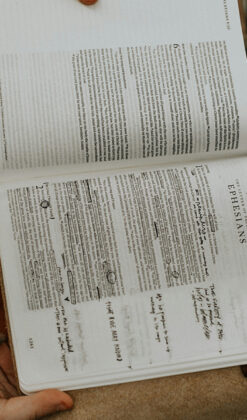“Come on, Erastus. We’re going to be late. The celebration has started!”
Fear gripped Erastus’s heart. He knew he had to do it, but his feet felt cemented into the marble floor as the warm Mediterranean breeze swept through his front door.
“Hang on, Gaius. Let me just grab my cloak.”
“And don’t forget your speech, Erastus. Remember: this is your night!”
“Oh … yes, of course,” Erastus stammered as he stuffed a piece of parchment into his cloak. “Okay. Let’s go.”
As the two rushed to the city square, the buzz of the crowd vibrated through the alleys. Intoxicated with violence, they chanted: “Kurios Vespasian. Kurios Vespasian. Kurios Vespasian!
“They’re waiting for you, Erastus! Are you ready?”
“Um, yes. Yes, of course. I’m ready.”
Celebrations ignited across the Roman world at the news of Emperor Vespasian’s recent bloodbath in Jerusalem. The Jewish revolt had been crushed by Rome, and pride wafted through the Mediterranean air, especially in patriotic towns like Corinth, where Erastus was the city treasurer.
Kurios Vespesian! Kurios Vespesian!
“There it is, Erastus! Look, they built a stage for your speech. This is your night, Erastus. The favor of the gods is with you. And kurios Vespasian, our divine emperor, is with you. Make him proud!”
As city treasurer, Erastus was called upon by the Senate to herald the good news of Lord Vespasian’s peace-bringing victory over the revolting Jews. Putting down such threats brought salvation and security to the empire. Normally, Erastus would eagerly celebrate. The only problem was that Erastus had recently renounced his belief in the Roman gods, and he no longer believed that Vespasian was his kurios. He had joined the community of the Way, a group otherwise known as Christians. And Erastus now worshipped a new King, a Jew from Nazareth named Yeshua whom his own government had crucified. Yeshua, the crucified Jew, was his new Kurios—His divine Lord.
“Right this way, sir.” A soldier beckoned, glistening with joy. “Vespasian reigns! Make him proud, sir!”
Erastus strolled up the stage, dove into his pocket, and snatched his manuscript. He gazed over the crowd and then squinted up to the sky and whispered: “Kurios Christos, give me strength to follow You. May Your cross be mine. This night, I will be with You.”
“Citizens of Rome,” cried Erastus. “We are here to celebrate Vespasian’s recent victory over the Jews in Palestine. Many people have been killed, both Romans and Jews. And Rome has reclaimed Palestine for the empire.”
“Kurios Vespasian!” shouted the crowd. “Salvation and peace belong to Rome!”
“However,” continued Erastus. “I’m here to tell you about another empire. Another Kurios. A better salvation and true peace.”
The crowd froze.
“I stand before you as a herald of the good news that Yeshua, a Jew from the town of Nazareth in Palestine, is the true Kurios, the Lord of the earth. His kingdom rules over Rome, and its boundaries reach to the ends of the earth. I am a servant of this King, this Lord. He is my Kurios. He is your Kurios. I have submitted to His rule, and I can therefore not celebrate this war with you. Many innocent lives have been shed to maintain Rome’s peace. But true peace is found in Yeshua.”
Anger whipped through those in the agitated crowd as they gnashed their teeth. Several men rushed the stage. Soldiers drew their swords.
“Citizens of Rome. People of Corinth. I declare to you this evening that God has highly exalted Yeshua and bestowed on Him the name that is above every name, so that at the name of Yeshua every knee in this city square should bow and every tongue confess that Yeshua the Messiah is Kurios, to the glory of the God of heaven, our Father.”
A sword slashed across Erastus’s face, and he crumpled to the floor. Blood gushed out and filled the platform. Another sword hacked at his ribs, boots trampled his limps, and soon Erastus was with his Kurios.
And thus Satan was dealt another blow. Erastus, citizen of Christ, had suffered—and conquered.
And they have conquered him by the blood of the Lamb and by the word of their testimony, for they loved not their lives even unto death. (Rev. 12:11)
*This blog is taken from pp. 258-260 of my book Fight: A Christian Case for Nonviolence.











